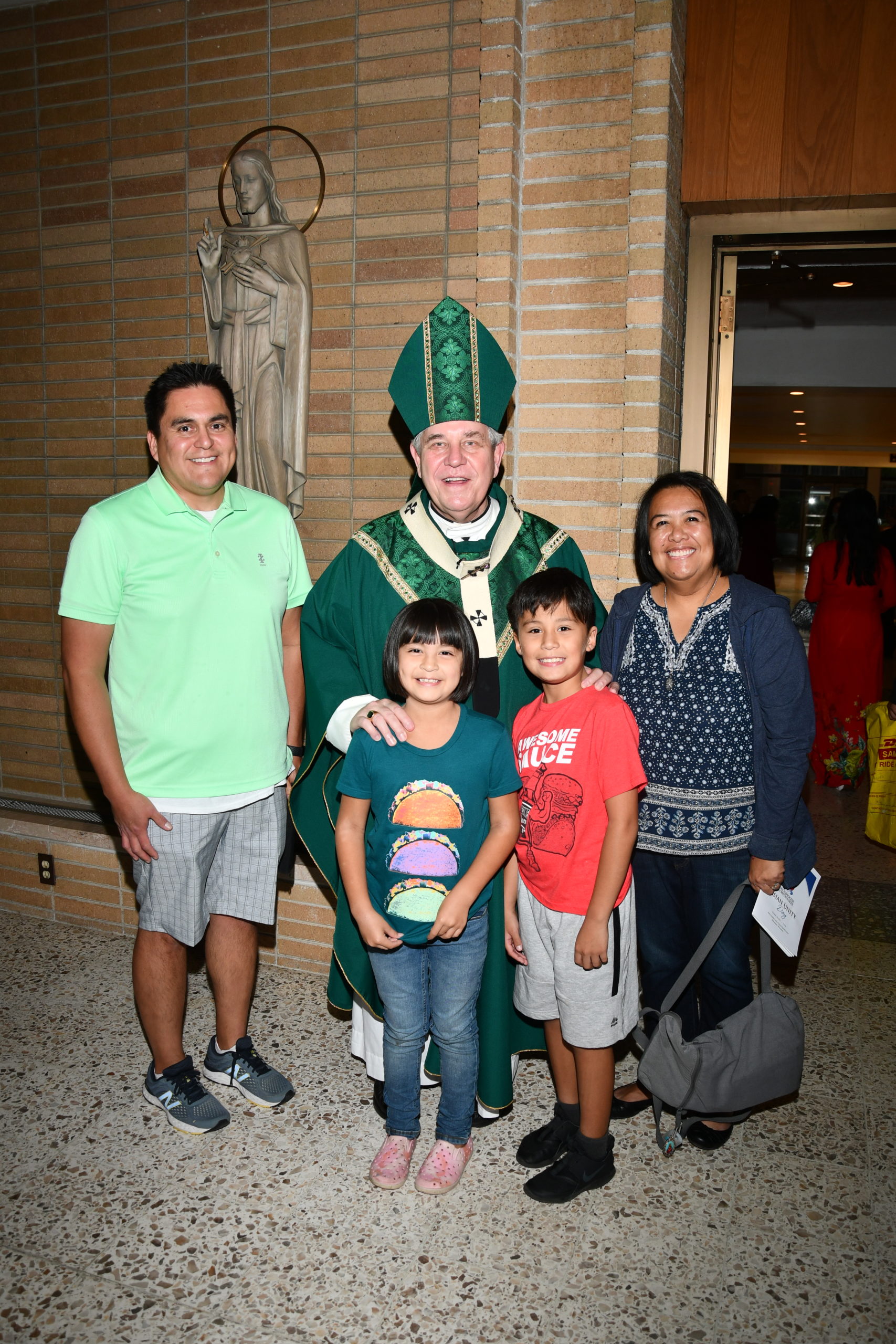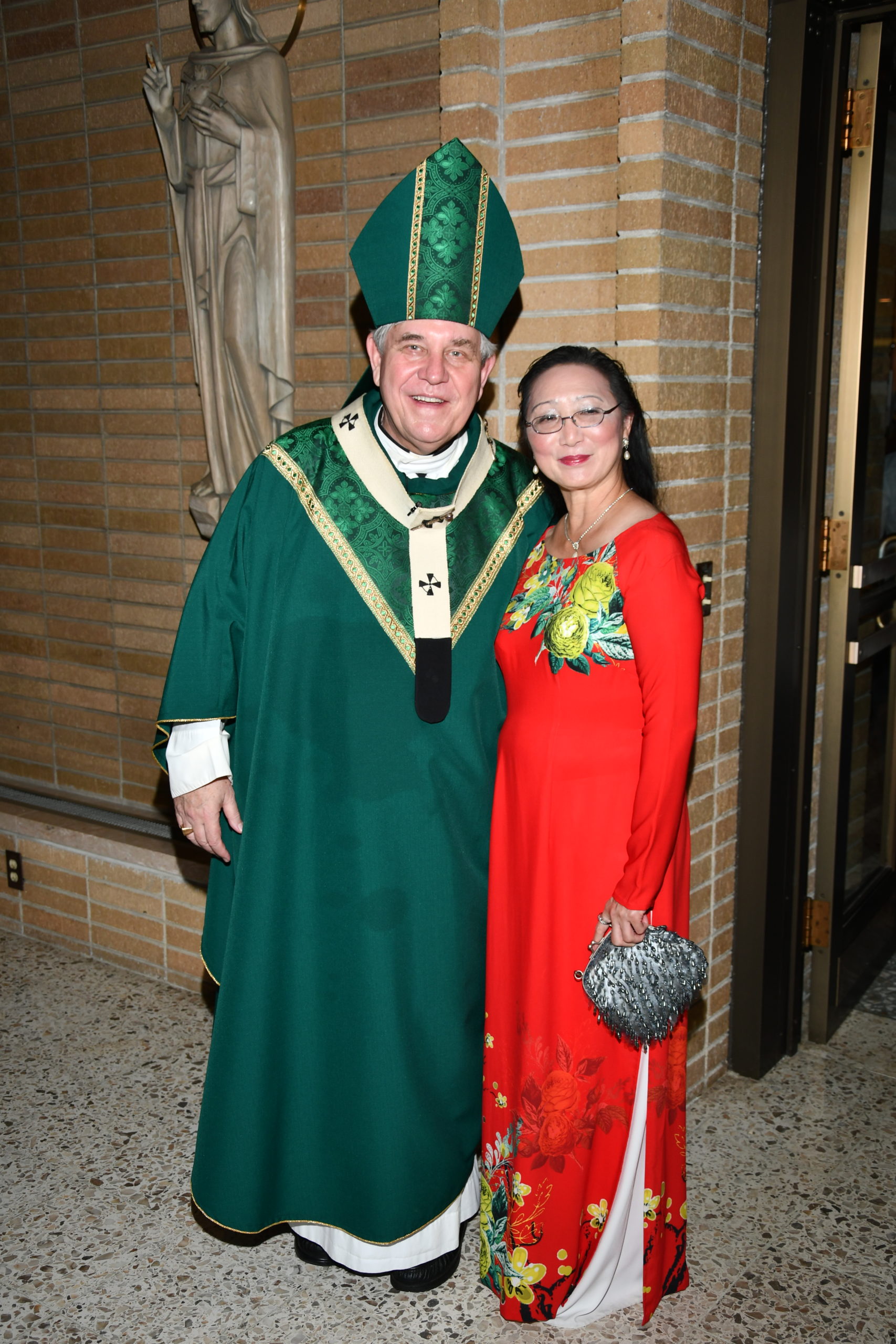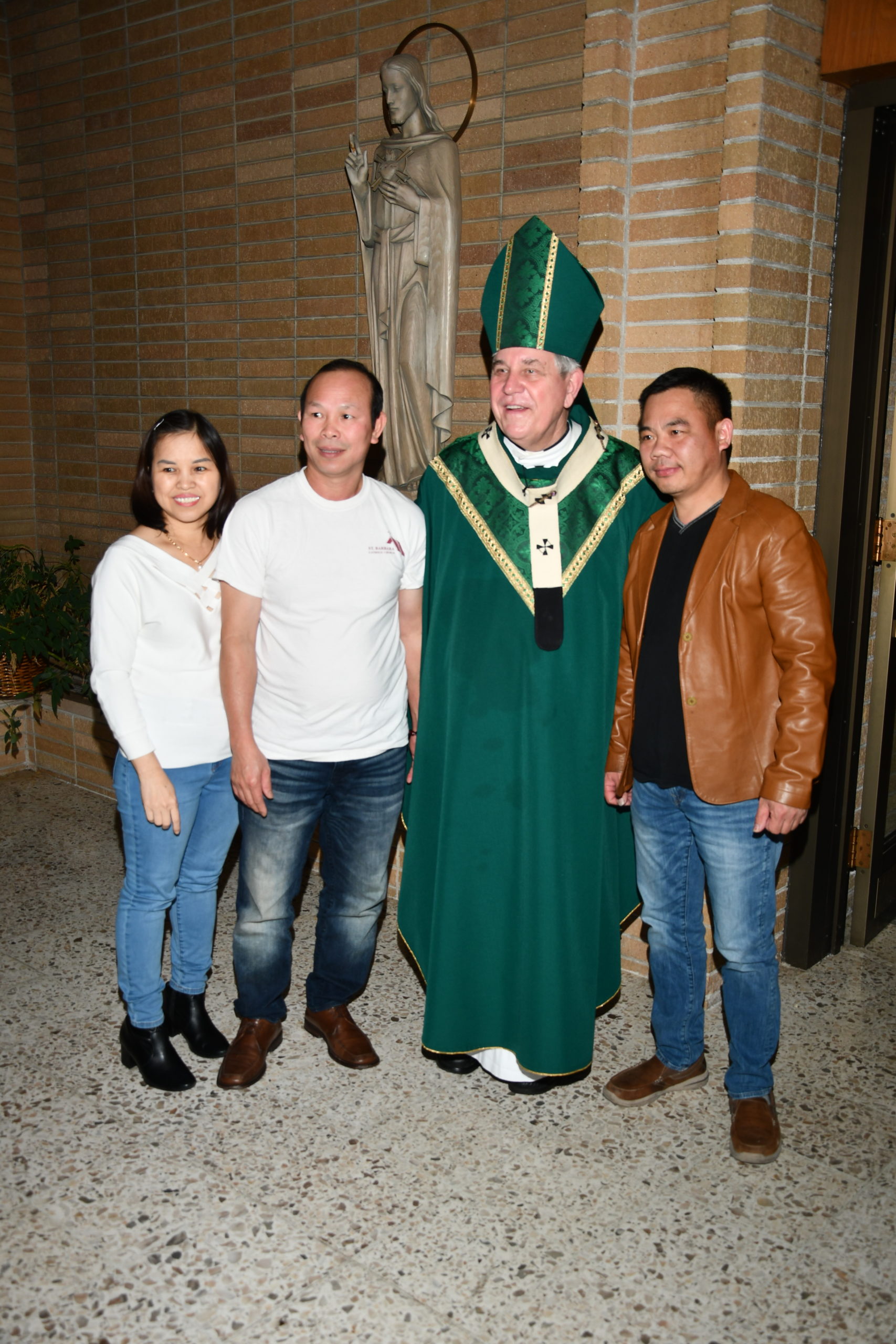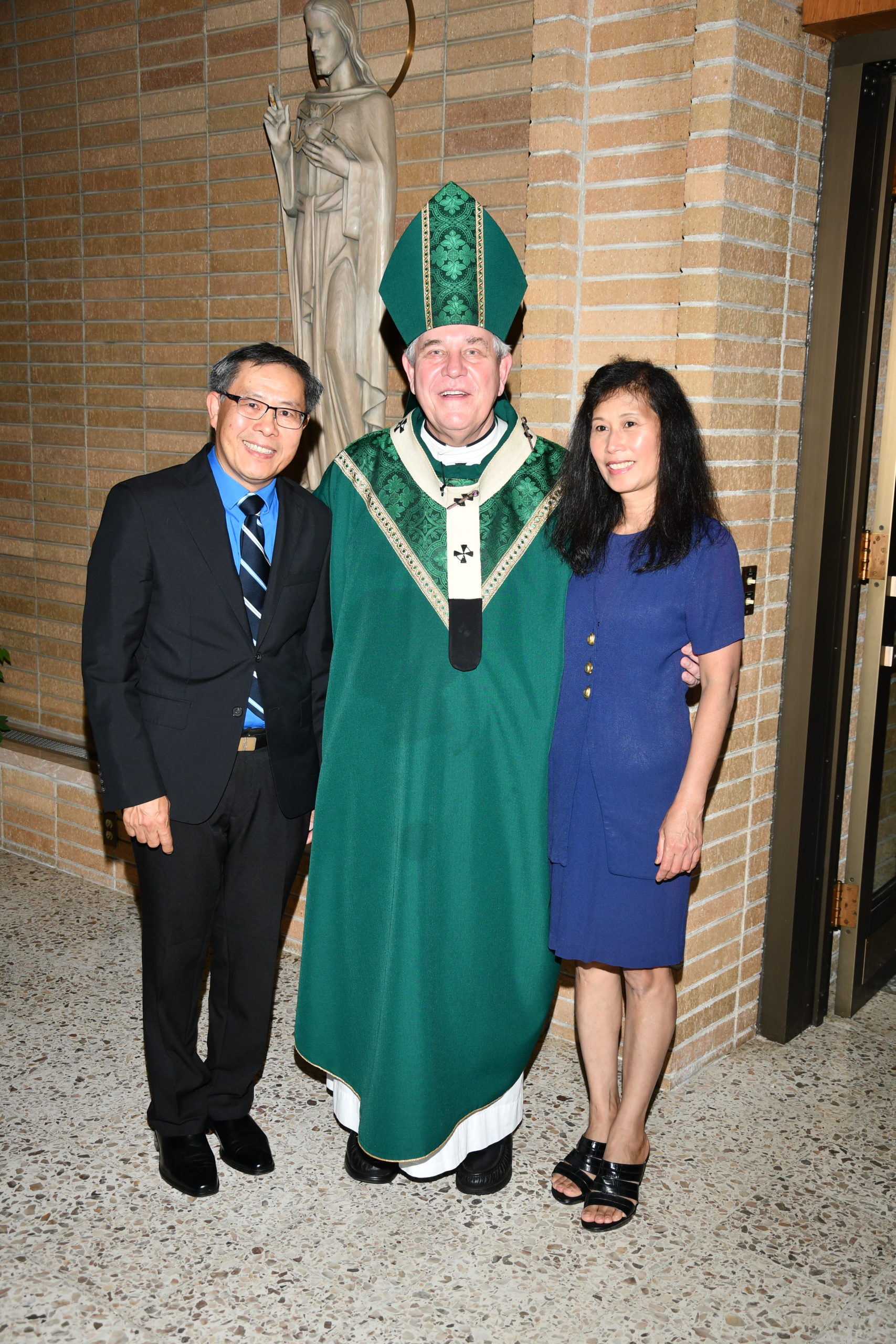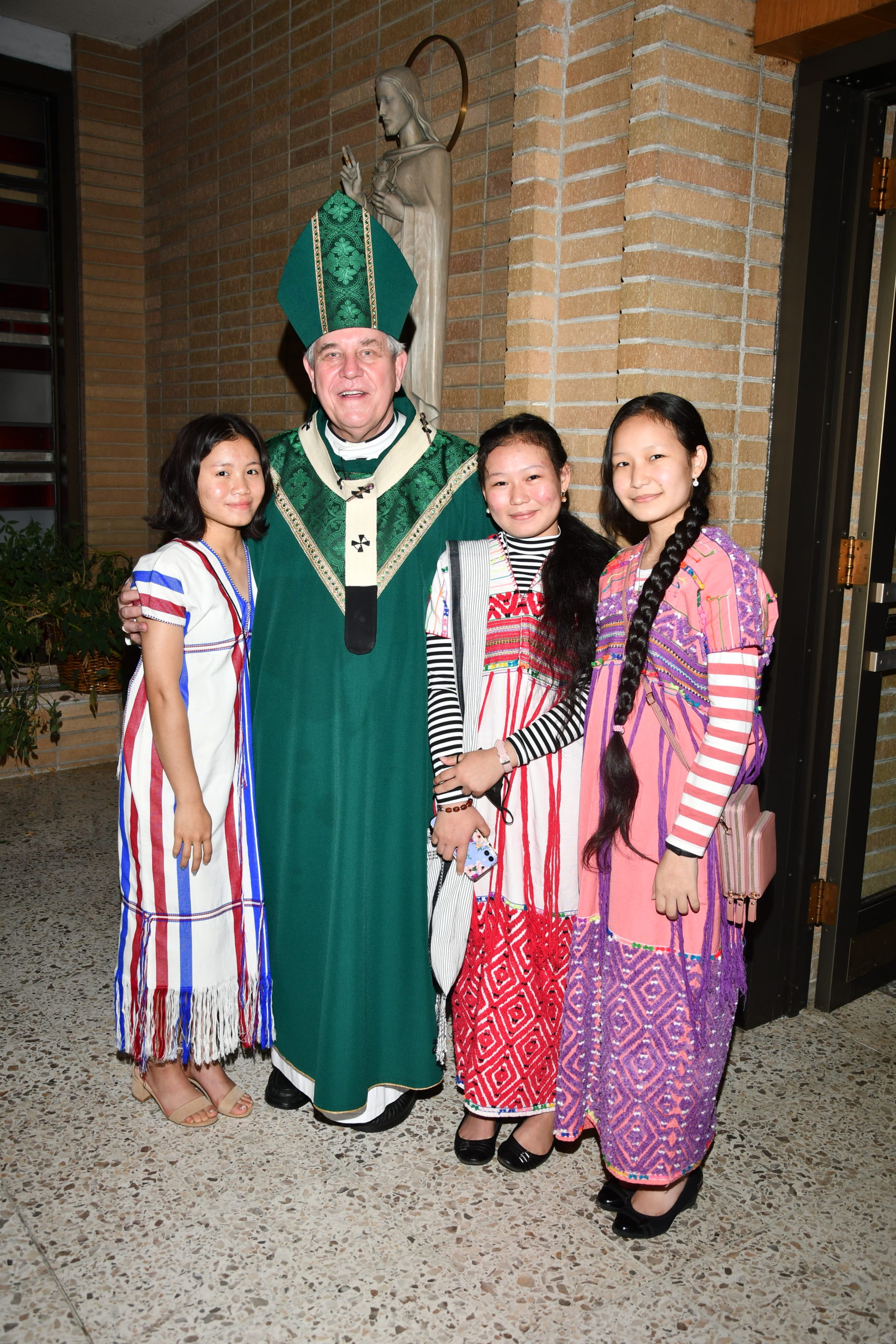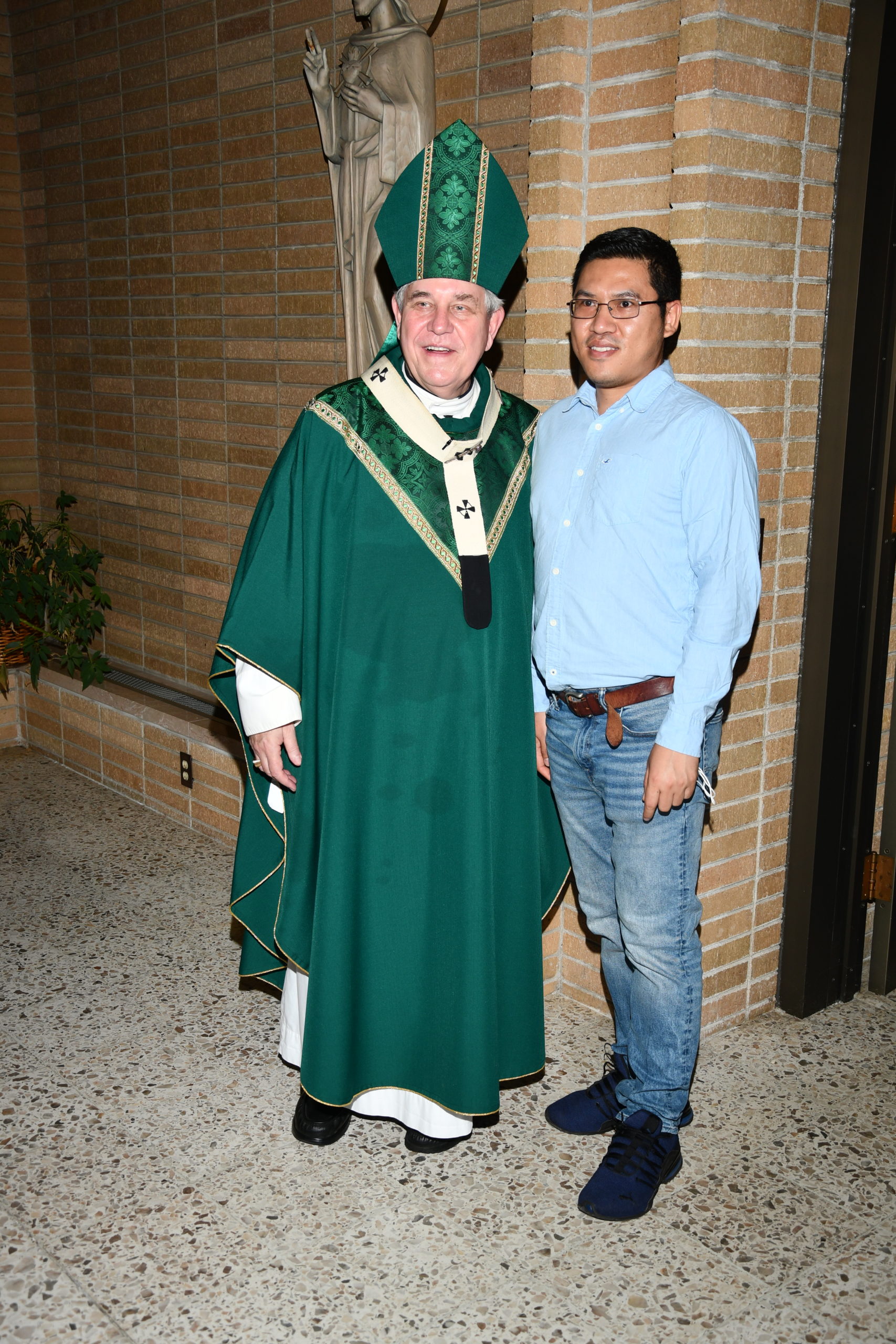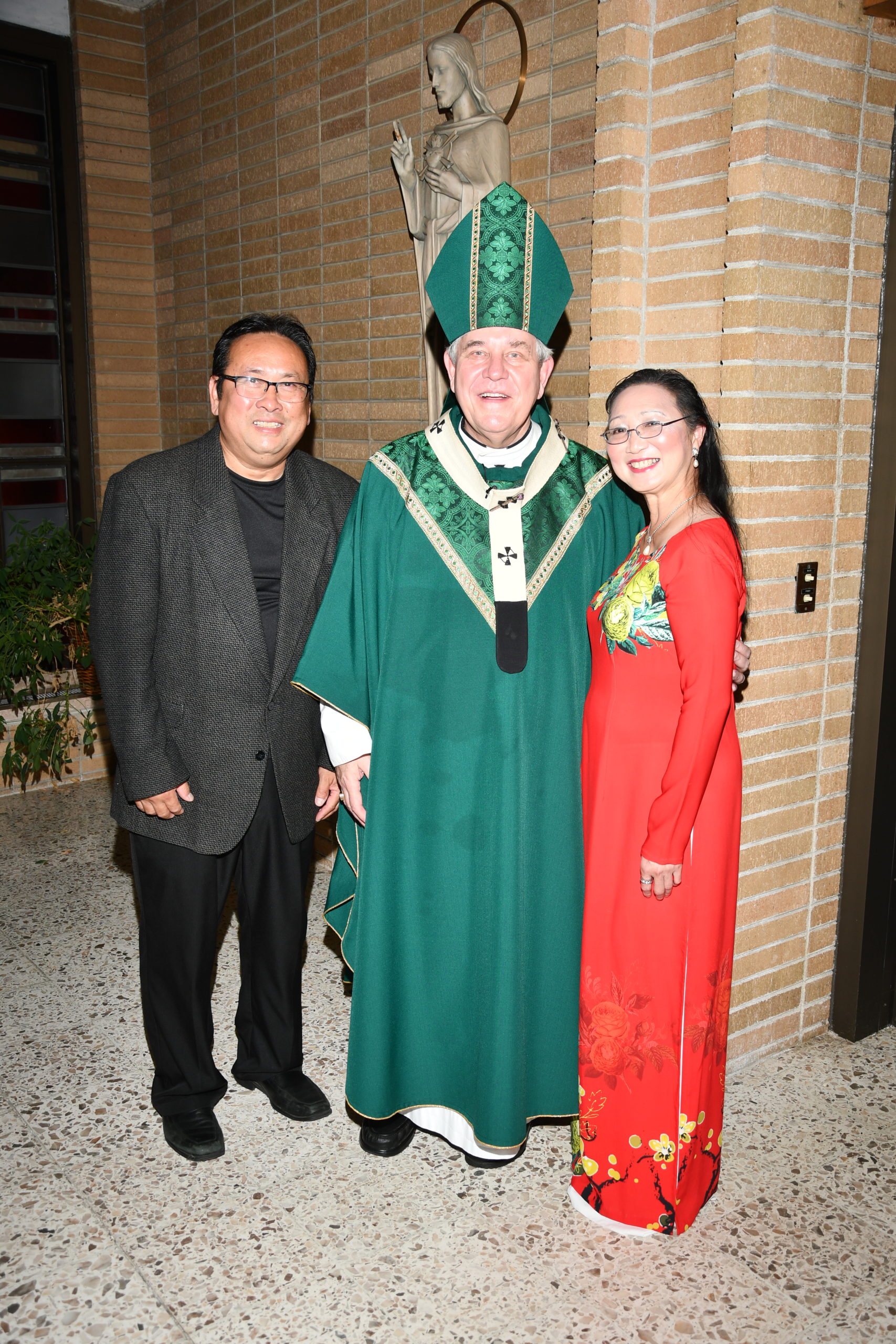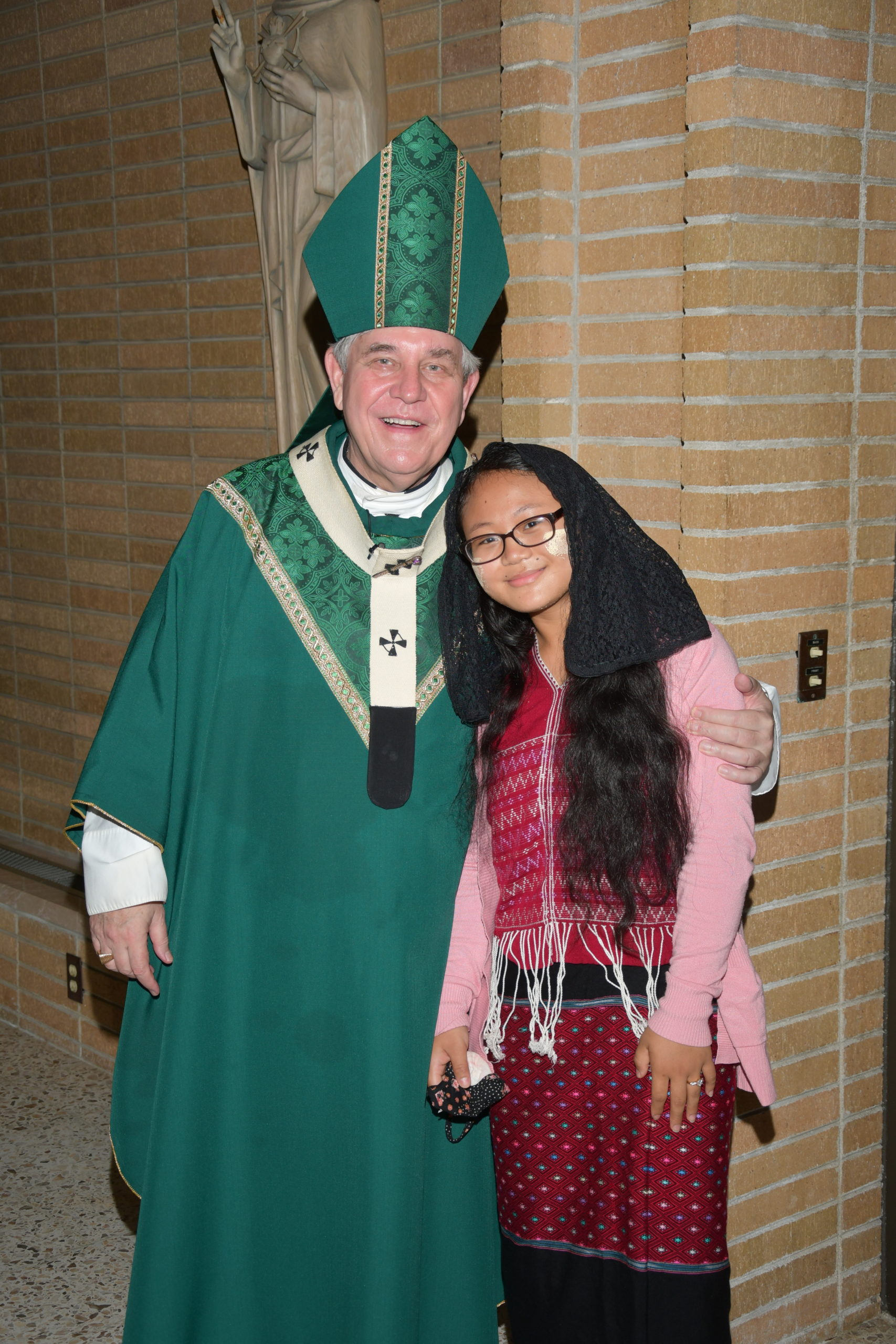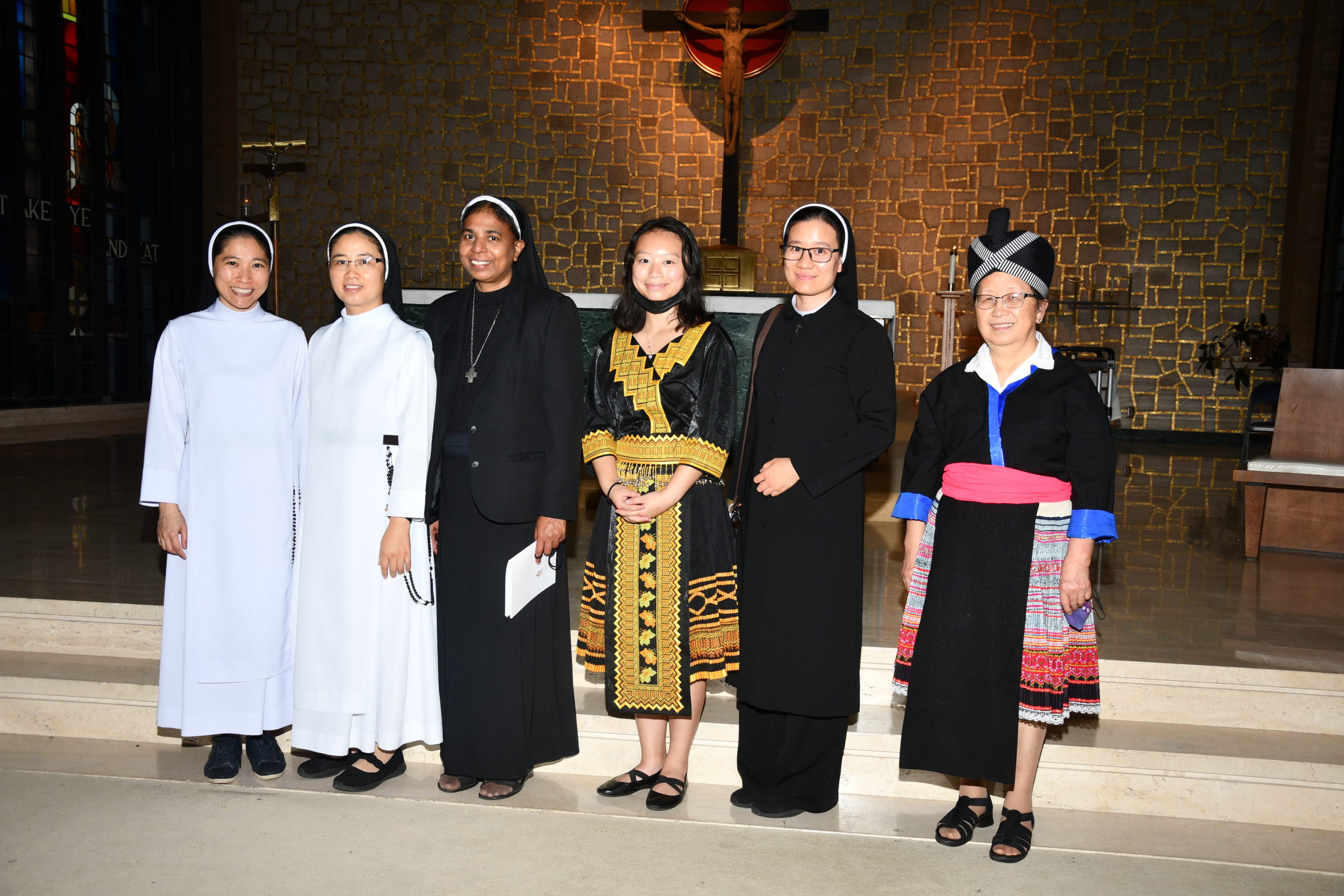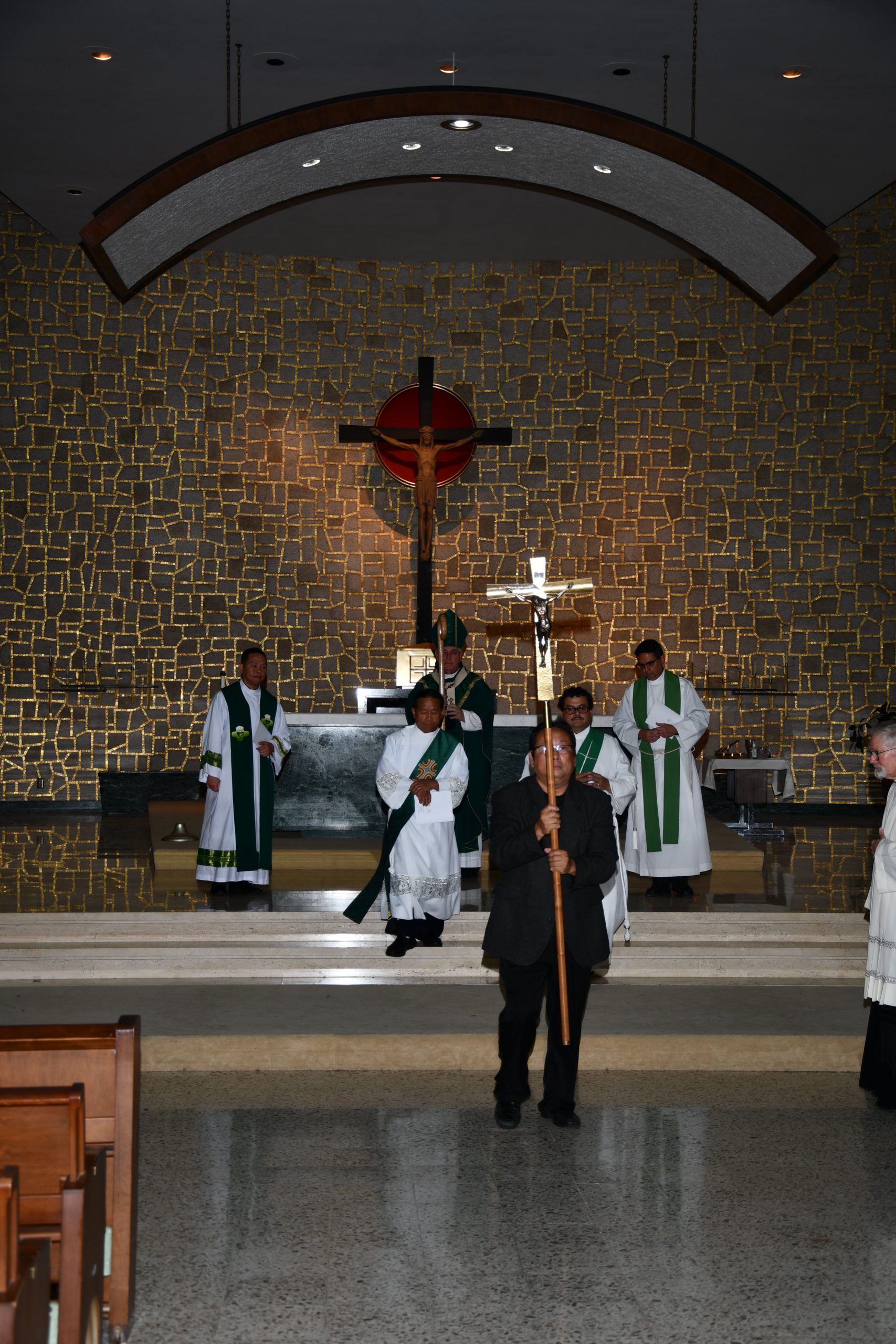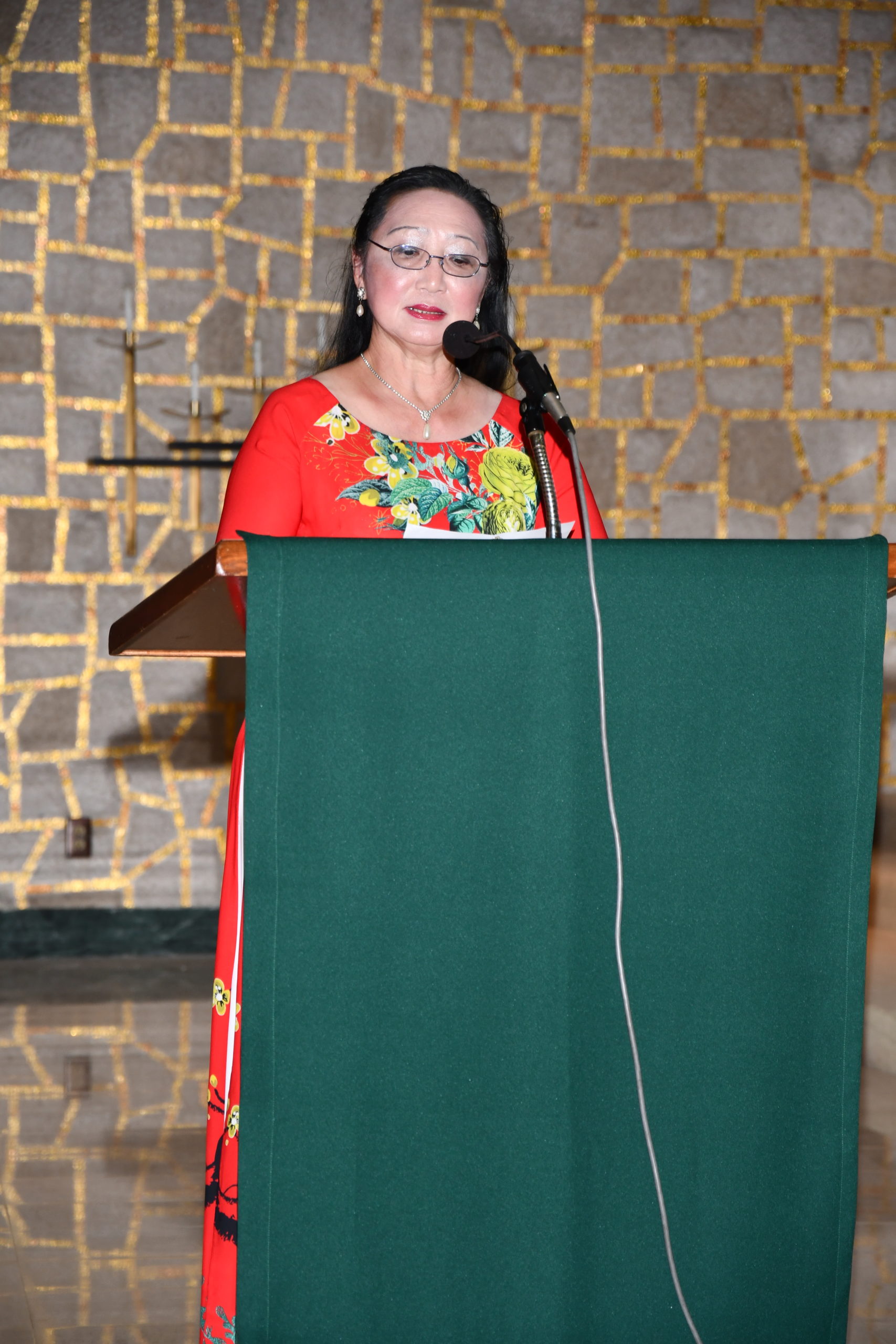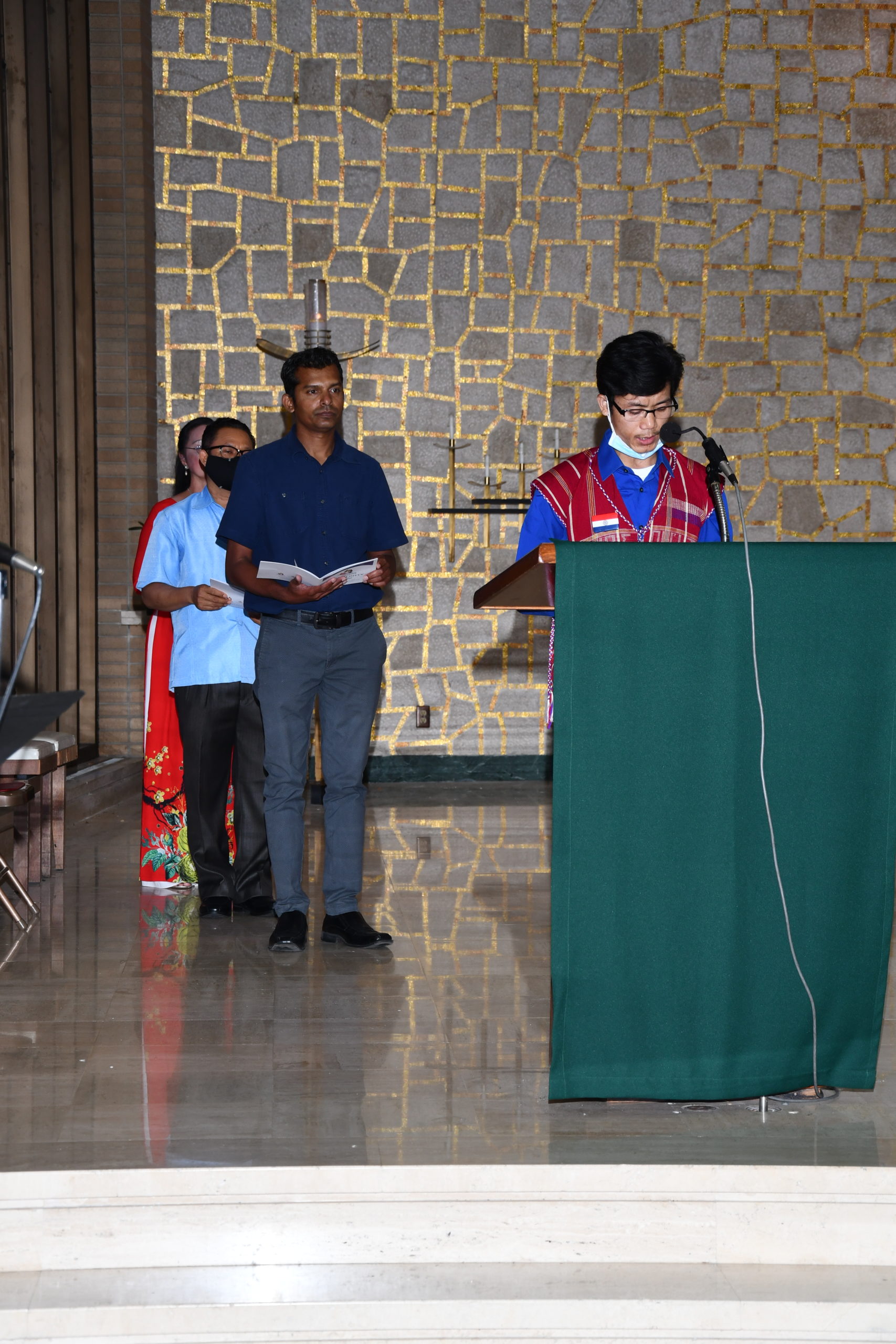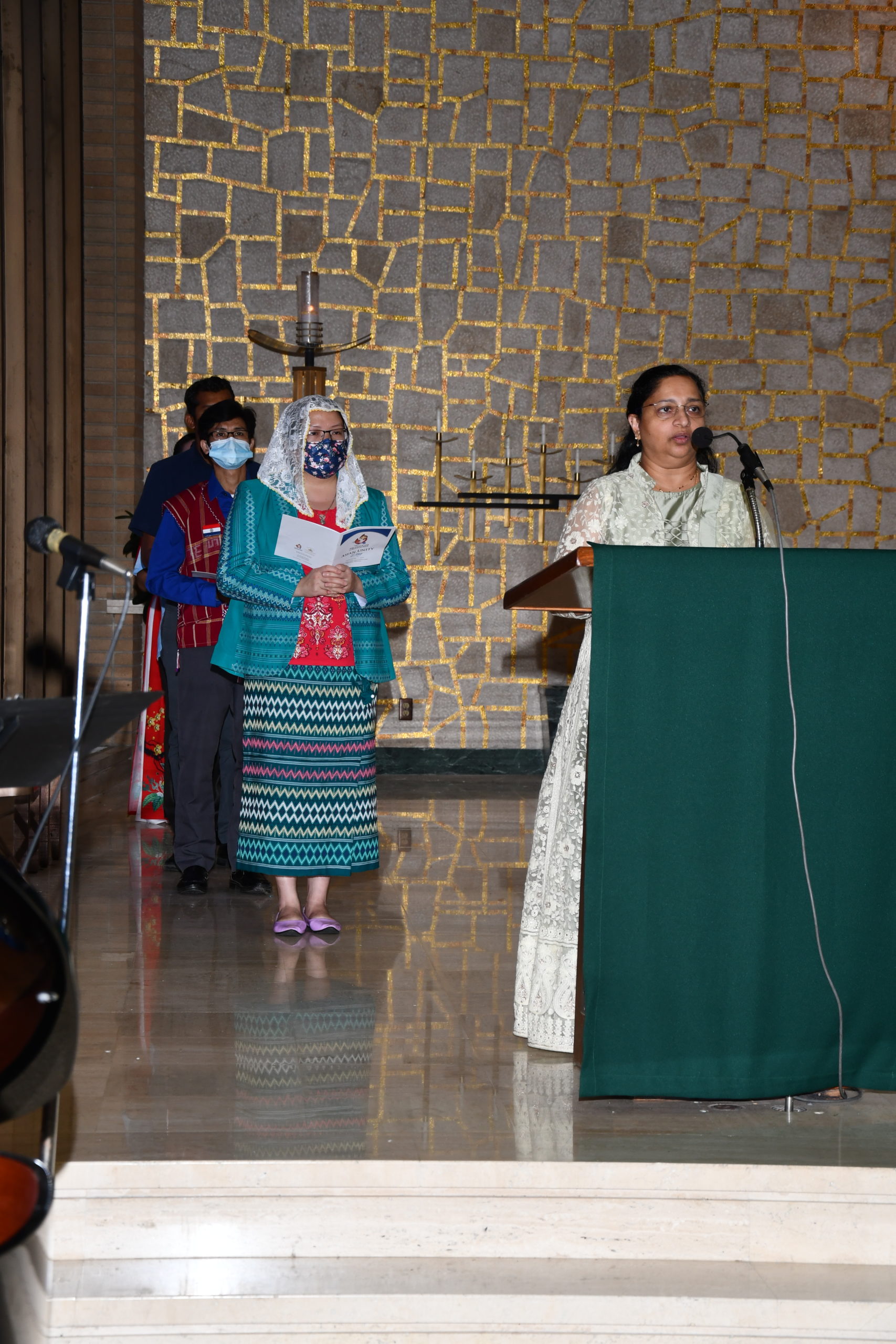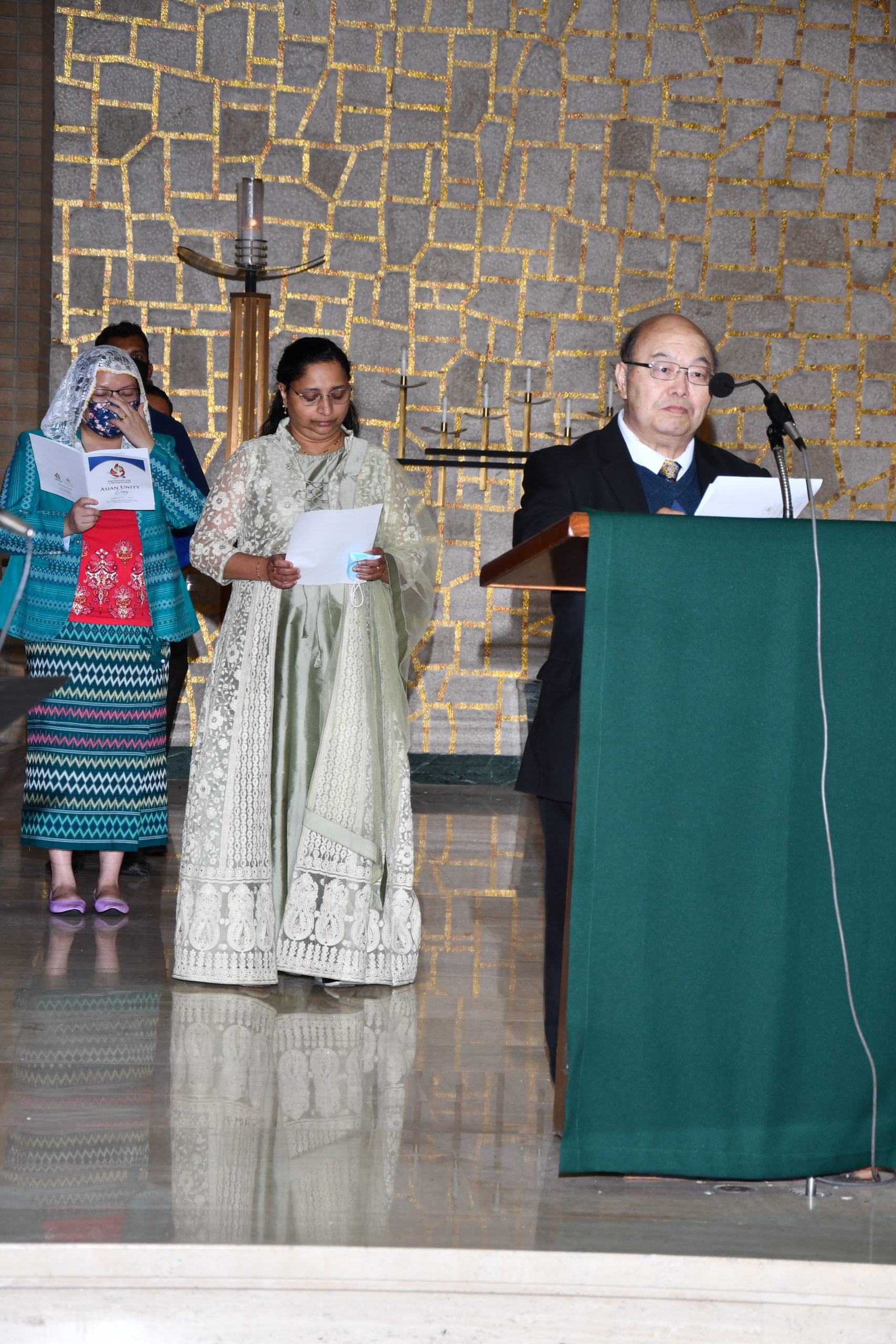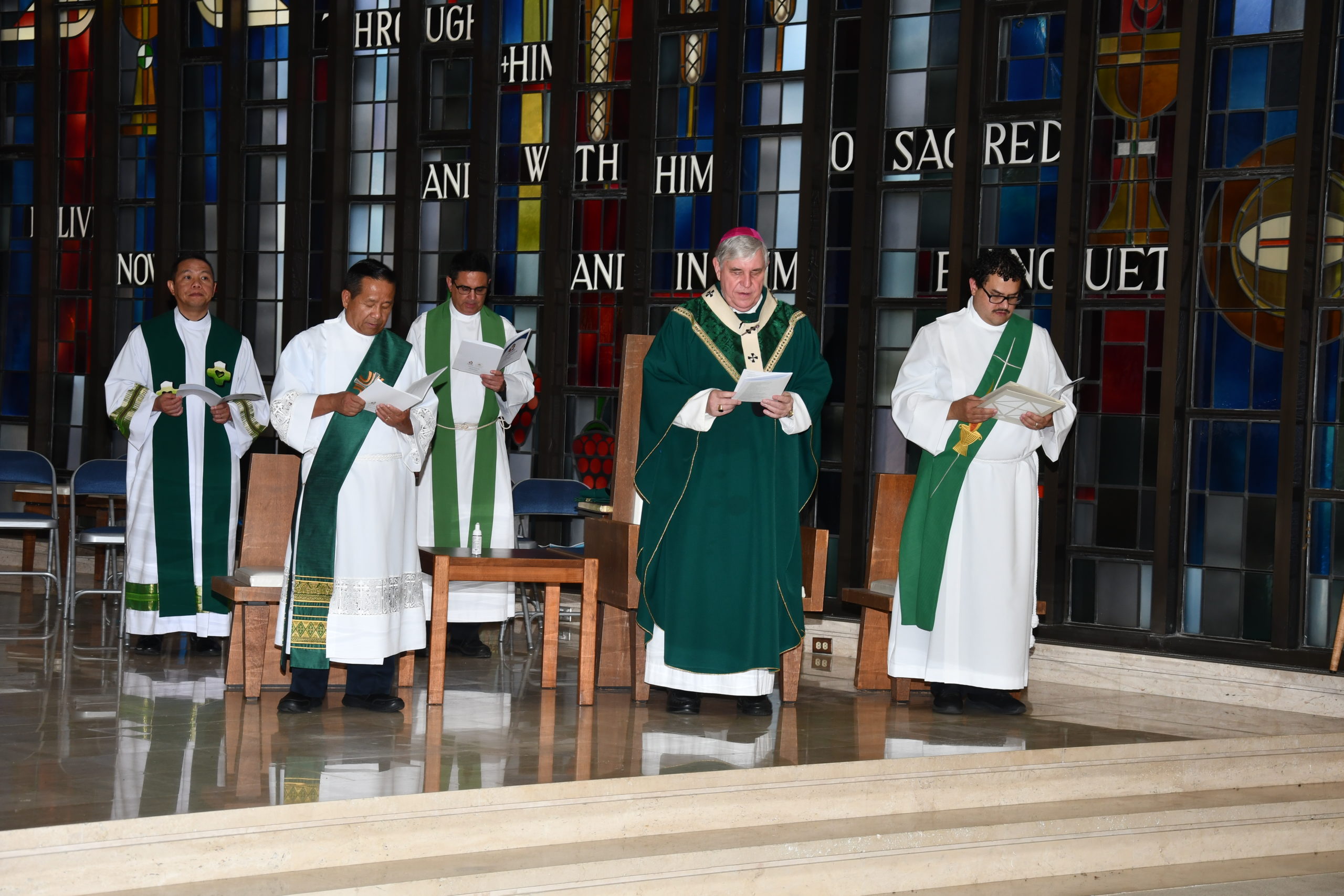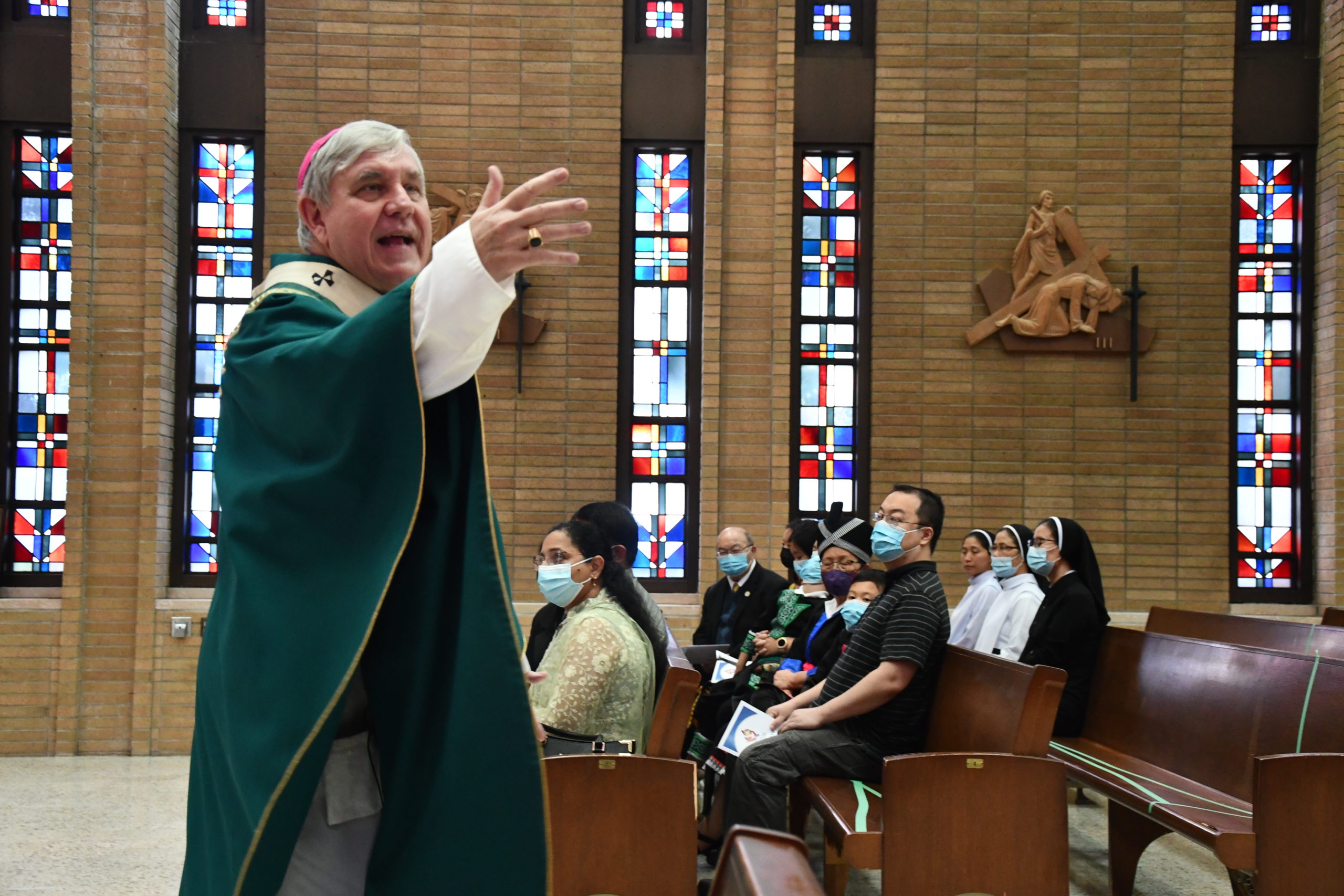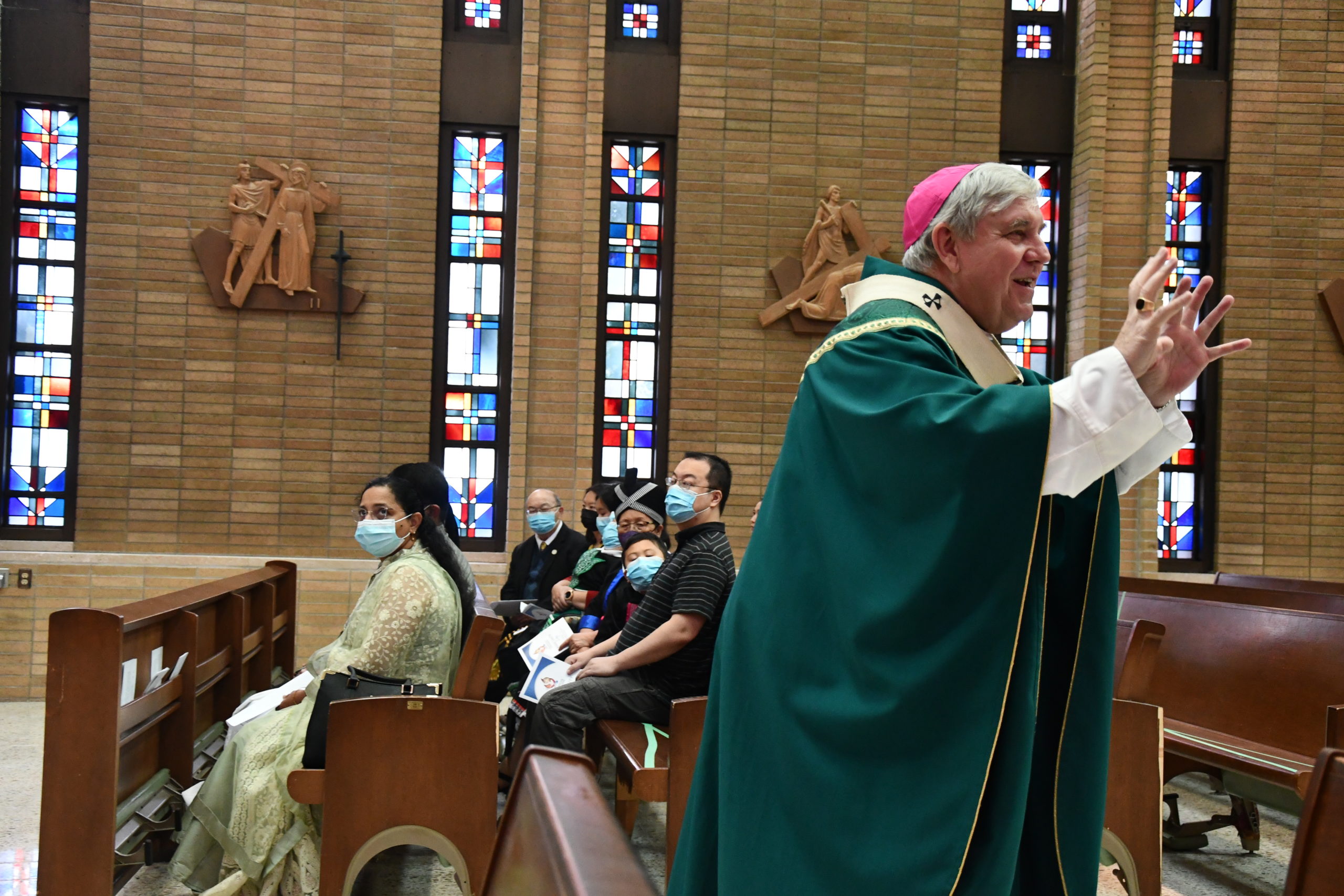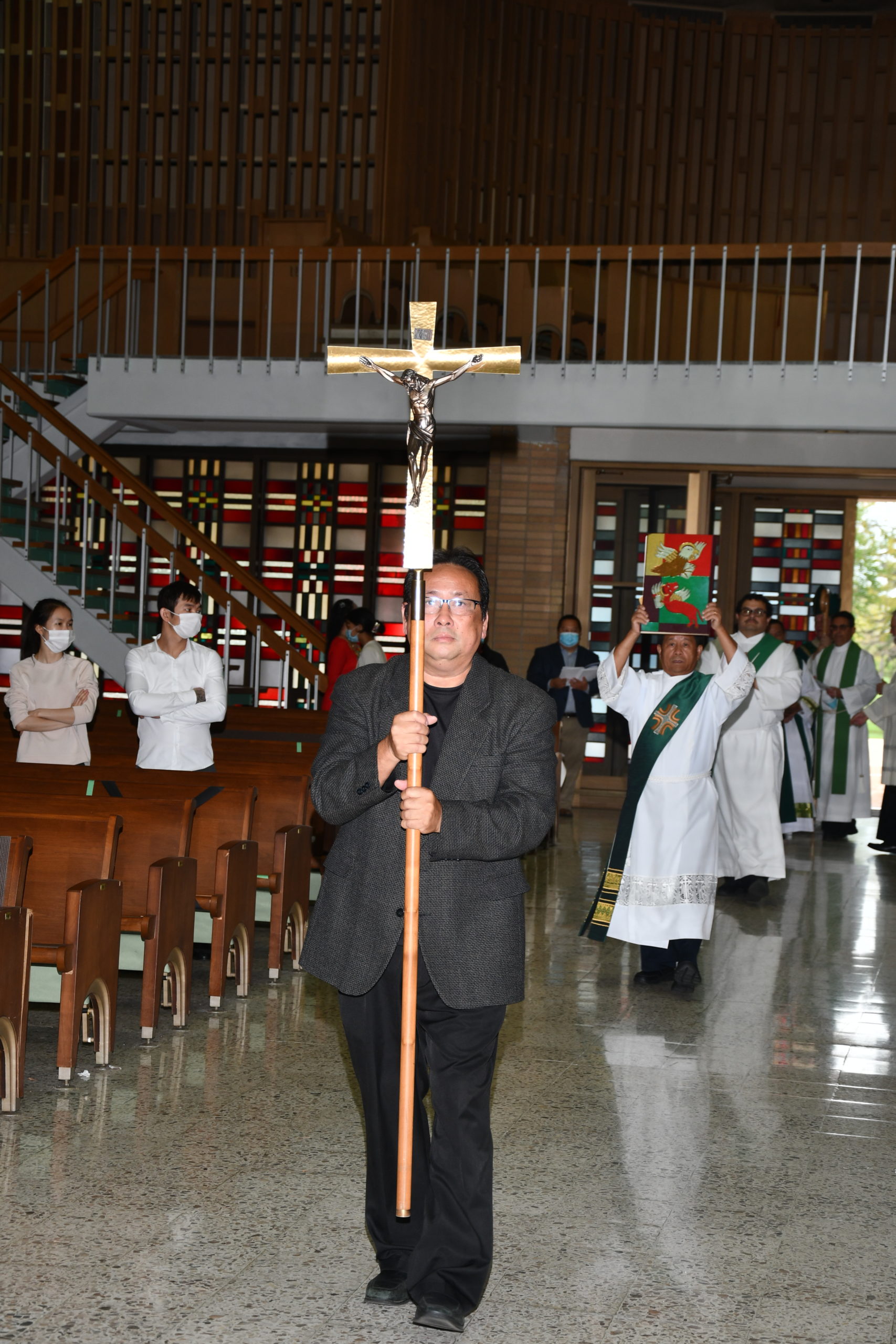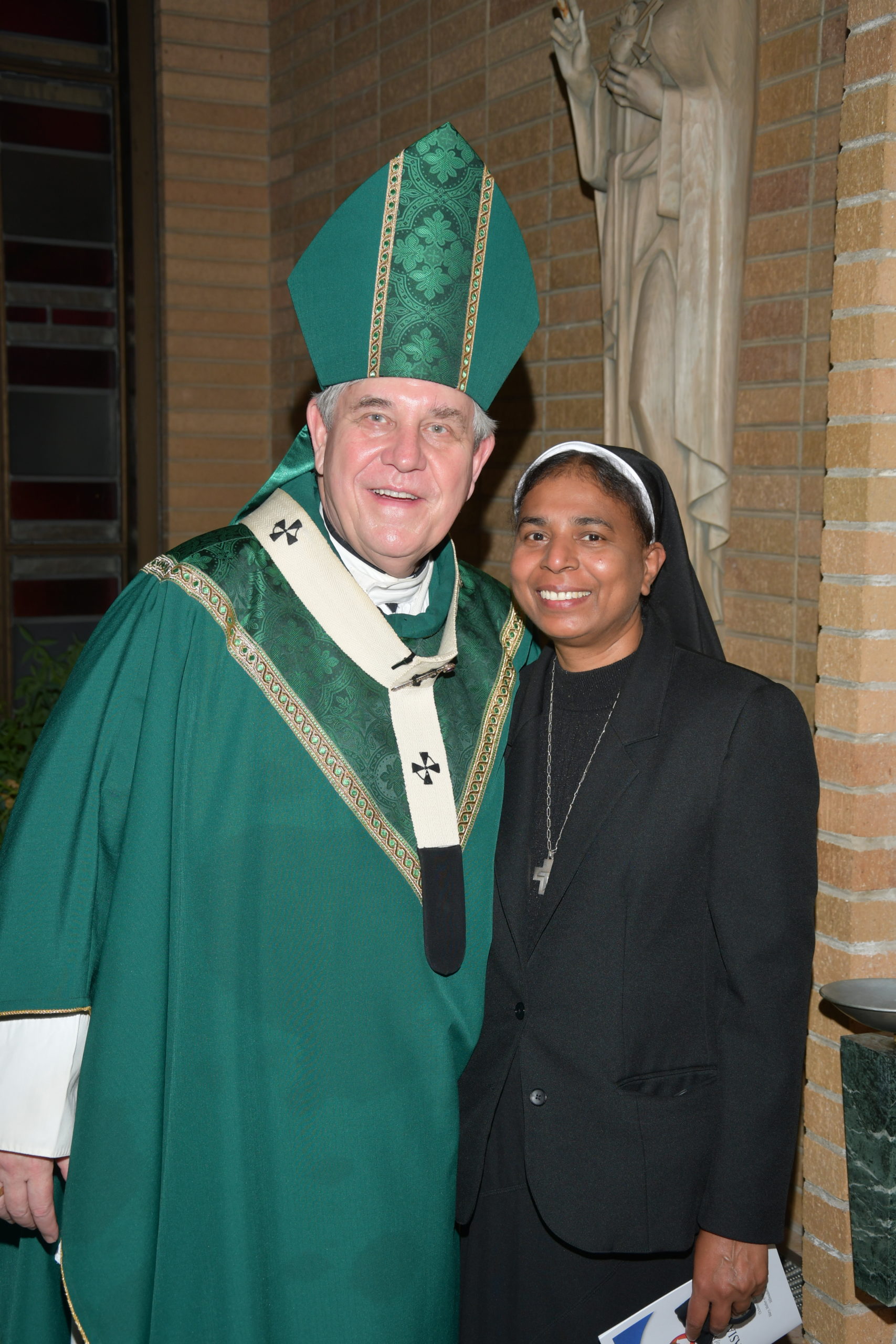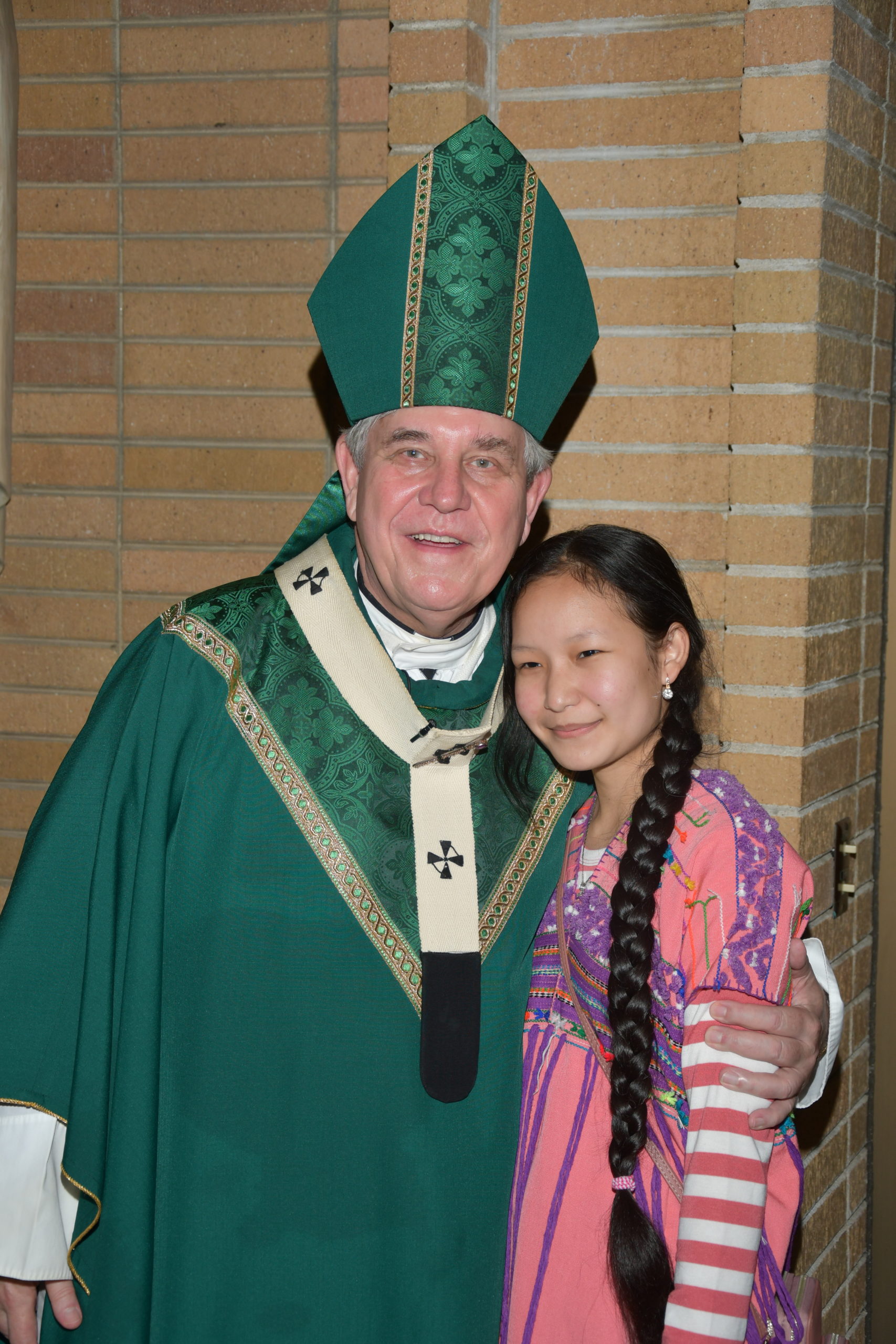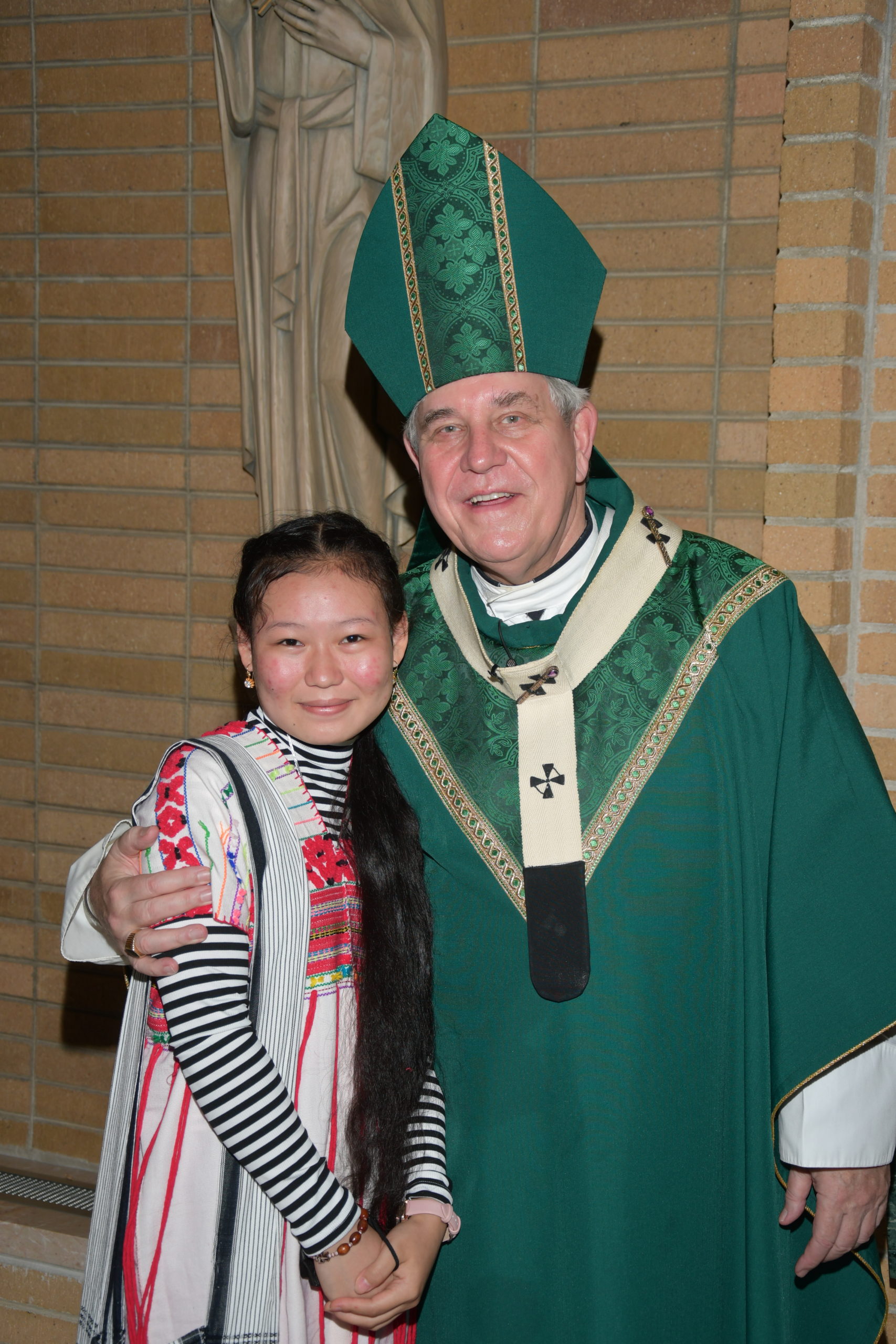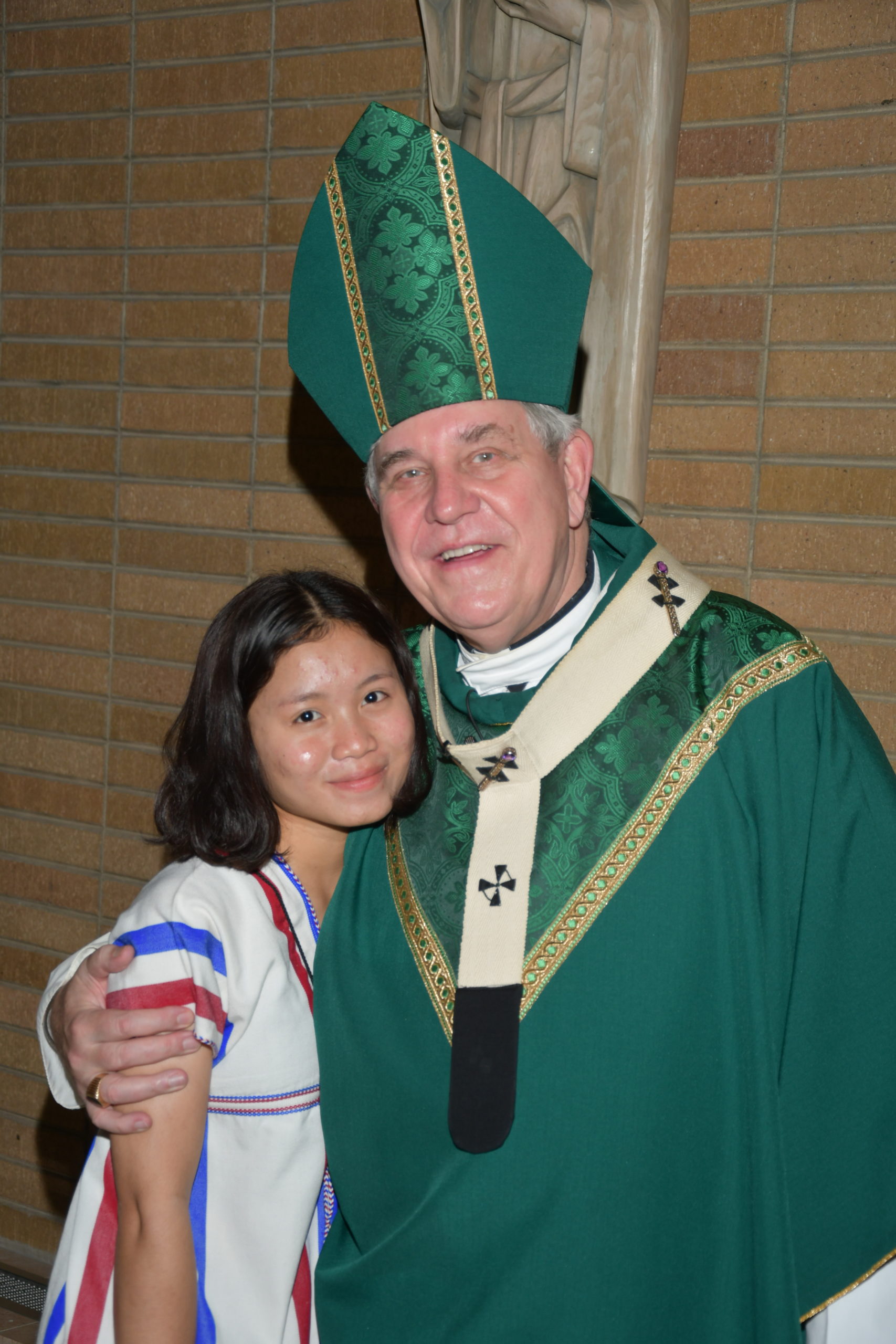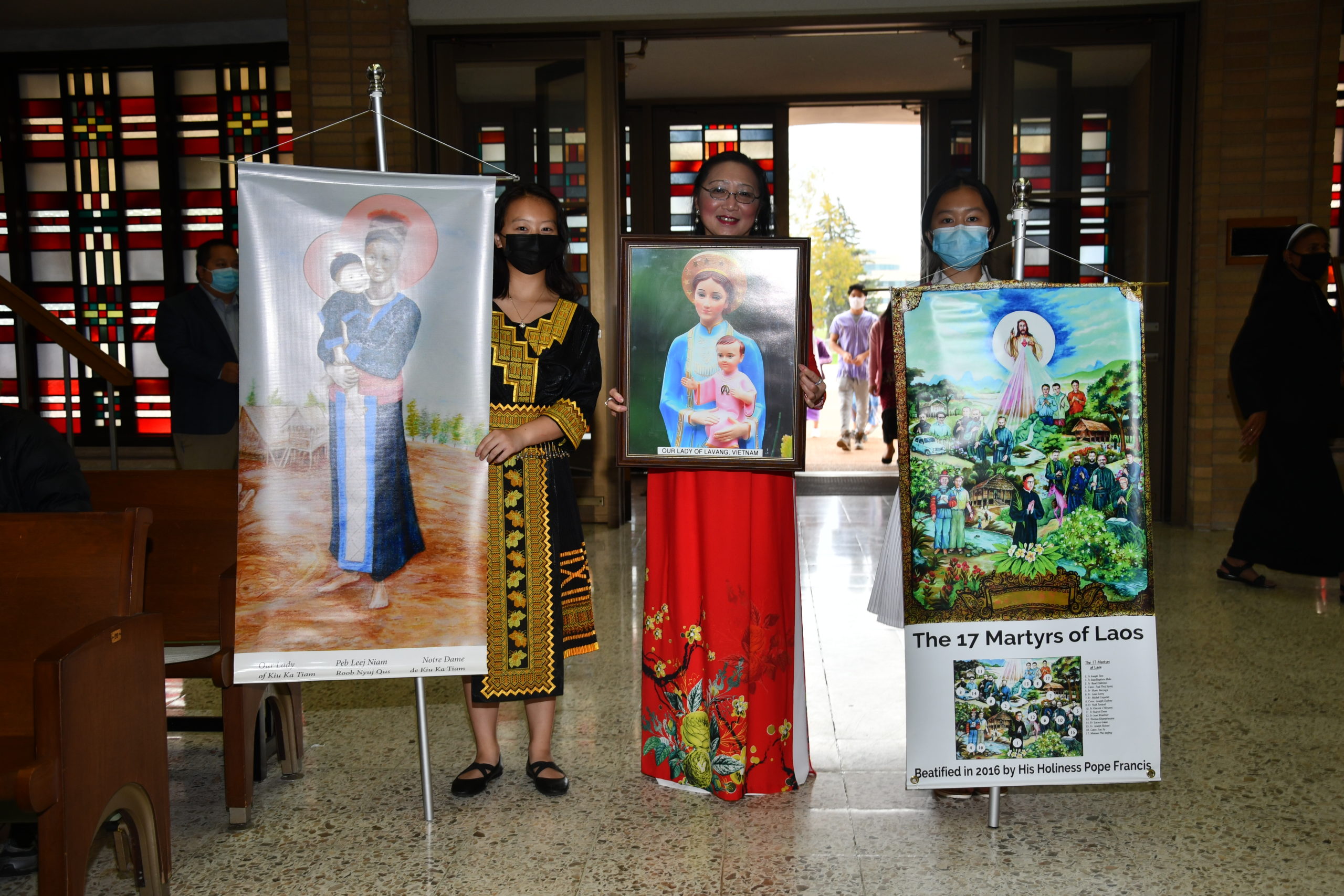
Asian Pacific Island Unity Day was celebrated at Mary Mother of the Church Pastoral Center on Sunday, Oct. 10. (Photo by Tim Townsend)
In the wake of the COVID-19 pandemic, reports of racism and xenophobia against Asian Americans have been on the rise.
There are some local Asian American Catholics who have not experienced anything different in their treatment, while some say they are frightened.
Fessahaye Mebrahtu, director of Black Catholic and Ethnic Ministries for the Archdiocese of Milwaukee, said Catholics have a particular obligation to oppose racism in all its forms.
“Catholics, first and foremost, have to understand every person is created in the image and likeness of God. Racism and discrimination are sin, an affront to the image and likeness of God reflected in our fellow human being,” he said. “Racism violates human dignity, setting us on the slippery slope of dehumanizing our fellow person. Once we dehumanize our brother or sister, it is easy to negate his/her life.”
Archbishop Jerome E. Listecki celebrated Mass on Sunday, Oct. 10, as part of Asian Pacific Island Unity Day at Mary Mother of the Church Pastoral Center. He denounced any forms of oppression against Asian Americans and Pacific Islanders.
“Having just celebrated Mass at Asian Pacific Island Unity Day, I understand the strong faith of our Asian and Pacific Islander Catholic communities,” Archbishop Listecki said. “There can be absolutely no tolerance of any acts or attitude of racism toward those of Asian and Pacific heritage in our community, or any other racial or ethnic groups. This is never in keeping with the love for one another that Jesus demands from us.”
Chang Lor, president of Hmong American National Catholic Association (HANCA) and a parishioner at St. Michael Parish in Milwaukee, said that while he has not personally experienced any COVID-related racism, “it’s a concern — it’s scary. I definitely am scared and don’t want to advertise the Hmong Mass (at St. Michael’s). It’s that scary.”
He said he feels that, since spring of 2020, he has been dealing with “two pandemics.”
“You deal with COVID-19 and you also deal with (racism),” he said. “You talk about more than 6,000 cases in the nation, and I’m sure there are more cases never reported.”
Since the early 1980s, St. Michael’s has welcomed refugees from Southeast Asia, explained Fr. Rafael Rodriguez, who said the Hmong and Lao came first, and more recently four different ethnic groups from Myanmar.
“In one way or another, we have all experienced racism in America. I am an immigrant myself from Venezuela. When people take the time to know me and for me to know them, we realize we are children of the same God, with the same dignity and with more things in common than we would have ever thought,” he said. “The same is true for our Southeast Asian parishioners. Yes, they have experienced racism and, unfortunately, like many other immigrants, they live in fear.”
Xia Vue Yang, one of Archbishop Listecki’s designated catechists for the archdiocese and a leader within the Catholic and non-Catholic Hmong Community, said that after 45 years of the Hmong refugees who have resettled in the US, he has fortunately not seen an alarming sign of increasing racism and hatred.
“Of course, there have been a few incidents or misunderstandings here and there, in some states, but no significant signs of ‘true racism’ against the Hmong,” he said.
Yang said he hasn’t heard of any racist incidents as a result of the COVID-19 pandemic, but they are remaining vigilant and remaining cautious. He attributes lack of attendance at Sunday Mass to the fear of contracting the virus.
“We try to move slowly and gradually to reach out to the Hmong families about coming back to Mass,” Yang said. “We start seeing more families showing up at Mass, and hopefully word will circulate, fear will diminish and our normal life will resume. We need a lot of prayers as well.”
In March, Bishop Oscar A. Solis of Salt Lake City and chairman of the USCCB Subcommittee on Asian and Pacific Island Affairs, condemned the culture of death, hatred and violence that underlies incidents such as the deadly shooting in the Atlantic area last spring among Asian-owned businesses.
Additionally, in May 2020, after increased reports of racism and xenophobia against Americans of Asian and Pacific heritage, bishops of several USCCB committees called for “a stronger resolve toward unity, demonstrated through acts of solidarity, kindness and love toward one another, so that we can emerge from this crisis renewed and stronger as one American people; a people that places value in every human life, regardless of race, ethnic origin, gender or religious affiliation.”
Several Catholic groups, including HANCA, released a joint statement addressing discrimination and racism against Asian-Americans. “We call on communities to engage in peaceful dialogue at the local and national levels to address prejudice and anti-Asian bias,” read the statement. “We stand for the peaceful co-existence of all peoples, we pray for compassion and love, and work towards healing and unity.”
“We just want to throw our voice out there and let people know we’re concerned about our people,” said Lor. “We just want to be safe.”

